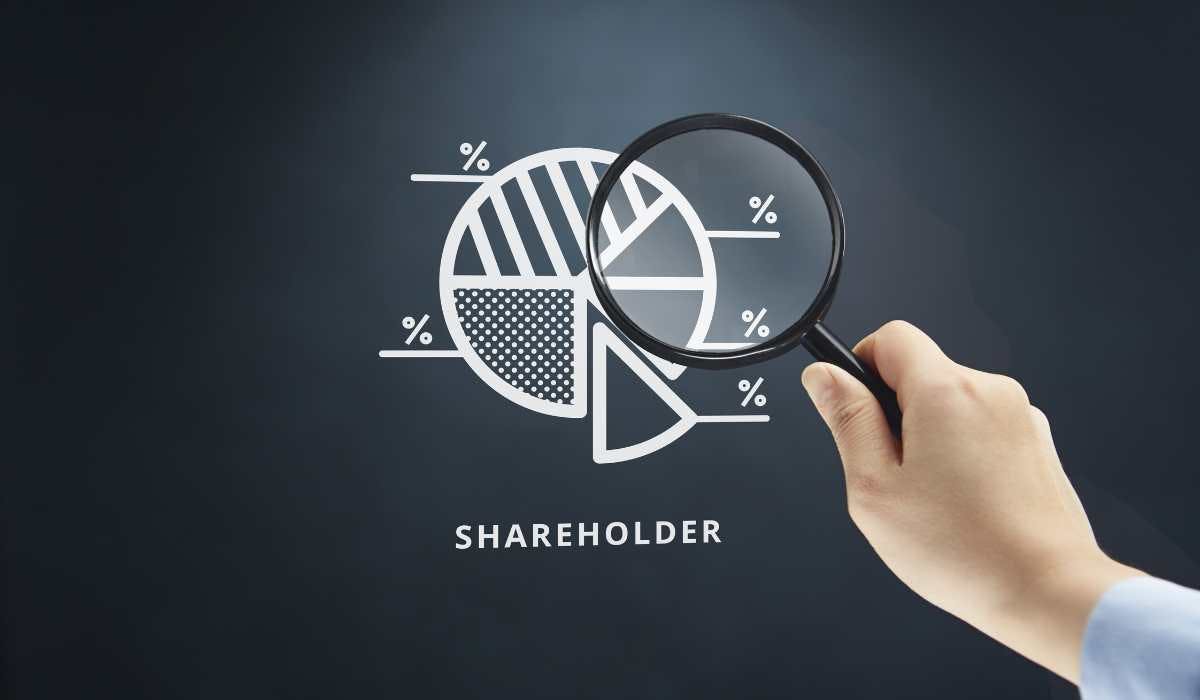Shares in Hong Kong have no par value, allowing flexibility in pricing and issuance.
The minimum share capital is HK$1, with no upper limit, making it adaptable for all business sizes.
Shareholders can agree on any timeline for payment, as there are no fixed legal requirements.
Various share types, including ordinary, preference, and non-voting, cater to diverse shareholder needs.
Accurate records and compliance with reporting requirements are essential for managing share capital.
The share capital of a Hong Kong company is the money invested in a company by its shareholders in exchange for shares. In Hong Kong, the Companies Ordinance (Cap. 622) sets out the rules for managing share capital, including issuing, transferring, and changing it.
The share capital of a limited liability company is divided into a certain number of shares. Each share represents a partial ownership of the overall company and gives a shareholder a certain number of rights, including:
- Voting Rights: Shareholders can vote on important company decisions involving the company
- Right to Dividends: Shareholders are entitled to receive a portion of a company’s profits when it declares dividends.
When registering a company in Hong Kong or during its lifetime, it is essential to understand the essential rules governing its share capital.
Key Features of Share Capital in Hong Kong
Before diving into the details, here is a snapshot of the essential features of the share capital of any Hong Kong private limited company:
| Key Features | Details |
|---|---|
| No Par Value of Shares | Shares do not have a par value. A company can issue 1 share for HK$1 and another one for HK$2. |
| No Restriction on Currency | Share capital can be denominated in any major currency, supporting international operations. |
| No Contribution Timeline | Shareholders are free to agree on the payment calendar for the share capital. |
| Shareholder Liability | In a private limited liability company, the liability of the shareholders is limited to the total amount of share capital. |
| Types of Contributions | Contributions to the share capital may be in cash or in-kind (e.g., contributing assets or “sweat equity”). |
| No Thin Capitalisation Rules | Most companies in Hong Kong are set up with relatively small share capital and financed through shareholder loans. |
| No Share Premium | Share premiums do not exist under the no-par regime. |
| No Minimum Share Capital | Private companies can set share capital as low as HK$1. Most companies typically set share capital at HK$1,000 for 1,000 shares. |
In Hong Kong, shareholders, therefore, enjoy maximum flexibility when structuring and organizing the share capital of their company.
Share Capital Essential Concepts
When referring to the share capital of a company in any country, there are traditionally several concepts that need to be understood: are several concepts that must be explained:
| Share Capital Concepts | Details |
|---|---|
| Authorized Share Capital | Represents the maximum number of shares a company is authorized to issue, as stated in its constitutional documents. |
| Issued Share Capital | Refers to the portion of authorized shares that the company has actually issued to shareholders. |
| Paid-Up Share Capital | Denotes the portion of issued shares that shareholders have fully paid for. |
| Called-Up and Uncalled Share Capital |
When a company issues shares, it may not require shareholders to pay the full value upfront:
|
In Hong Kong, the concept of authorized or maximum capital has been repealed since 2014. This means that, at the time of incorporation, there is no predetermined or fixed limit to the future share capital of a company. The shareholders are, therefore, free to, at any time, increase the share capital amount (for example, when a company needs additional financing or investors).
Share Capital Requirements in Hong Kong
Several requirements should be taken into account with respect to the share capital of a Hong Kong company:
Minimum Share Capital
Under Hong Kong law, a company must issue at least one share to complete incorporation. The minimum share capital is HK$1, with no upper limit, except in specific regulated sectors like banking and finance.
This flexibility accommodates businesses of all sizes, from small start-ups to large corporations. Companies should carefully evaluate their operational needs and growth plans when determining their share capital.
While there is no strict minimum requirement, private companies typically set their share capital at HK$1, whereas public companies generally start with HK$10,000.
Currency
In Hong Kong, the default currency for a company’s share capital is Hong Kong dollars. However, shareholders are completely free to select another currency such as eur, USD, or something else. This is especially convenient for companies conducting business internationally.
Timing for Payment of Share Capital
As opposed to some other jurisdictions, there is no legal timeline for shareholders to pay their contribution to the share capital of a Hong Kong company.
The timeline for paying up the share capital is usually set out in the company’s articles of association, shareholders agreement (if any) or in resolutions of the shareholders.
Agreeing upon a timing for payment of the share capital is absolutely crucial when a company has more than 1 shareholder in order to avoid future disputes. Obviously, the matter is less problematic for companies with a sole shareholder.
In general, payment of the share capital may take place on several occasions:
- At the time the company was incorporated
- Upon issuance of new shares in the context of a capital increase
- At a fixed or unfixed date in the future
- On the occasion of a call on shares through resolution of the shareholders
- When the company is being wound up, to the extent that capital remains unpaid
Types of Shares
By default, any Hong Kong company is composed of “ordinary shares,” giving all shareholders the same rights and obligations. The share capital of over 90% of Hong Kong companies consists of ordinary shares.
However, as discussed below, it is also possible to structure the share capital around various classes or categories of shares granting different rights to different shareholders (typically the case in venture capital transactions).
Increasing or Reducing the Share Capital of a Company
Companies issue and manage shares based on their operational needs, following specific procedures to ensure compliance and financial integrity.
Increasing Share Capital
During the life of a company, it may be necessary to increase its share capital to facilitate growth, expansion, or financial restructuring.
The first step when issuing new shares is to review the company's Articles of Association (and Shareholders Agreement, if any) to identify any restrictions or specific procedures related to allotting shares. Attention shall be paid to specific provisions such as pre-emptive rights, which may require that new shares be offered as a priority to existing shareholders.
Obtaining the approval of the directors is required to issue new shares. If the directors are not already empowered to do so, a general meeting of the shareholders is required to pass an ordinary resolution.
The relevant resolution shall address all relevant matters, including the number of shares to be issued, the issue price, and the allotment date.
Upon allotment, a Return of Allotment (Form NSC1) must be filed with the Companies Registry within one month. This filing includes details about the new shares issued and the particulars of the shareholders. It shall be noted that no stamp duty is payable upon allotment of new shares.
Once the process is complete, the company’s statutory records must be updated. This includes (i) the Register of Members to reflect the new shareholdings, (ii) the Register of Significant Controllers or UBOs, and (iii) issuing share certificates to the new shareholders within two months of the allotment.
Finally, it is recommended that the company’s bank be notified. Indeed, the bank will need to conduct a compliance review on the new shareholders.

Reduction of Share Capital and Shares Buy-back
Share capital reduction involves decreasing a company's share capital, which can help eliminate accumulated losses, distribute excess capital, or improve financial ratios. This process is governed by the Hong Kong Companies Ordinance (Cap. 622) and requires adherence to specific procedures, including passing a special resolution by shareholders and, in certain cases, obtaining court approval to ensure creditor protection.
For more information, please refer to our guide on reducing the share capital of a Hong Kong company.
Share Transfers
Transferring shares in a Hong Kong company is a rather straightforward process.
Before proceeding, reviewing the company's Articles of Association (and Shareholders Agreement, if any) is essential. This document may contain specific provisions regarding share transfers, such as restrictions to maintain control over who can become a shareholder, pre-emptive rights granting existing shareholders the first opportunity to purchase shares being sold, or requirements for approvals from the board of directors or other shareholders.
If the Articles of Association stipulate the need for approvals, obtaining them is the next step. This may involve presenting the proposed transfer to the board of directors for their consent or notifying existing shareholders to respect their pre-emptive rights.
Preparing the necessary share transfer documents is a critical phase of the process. The key document is the Instrument of Transfer, a legal form that details the specifics of the transfer, including the number of shares, the names of the transferor and transferee, and the consideration or sale price. Additionally, Bought and Sold Notes may be prepared to record the agreement between both parties formally.
Paying stamp duty is a legal requirement in Hong Kong for share transfers. The duty is calculated at 0.2% of the higher value between the consideration paid or net assets value of the company.
For detailed information, check our complete guide to share transfers in Hong Kong companies.
Share Capital Records
Accurate records of share capital and ownership are essential for compliance.
The details of the shareholding structure of a company are maintained in the Register of Members (also known as Register of Shareholders). This record shall be updated at all times.
Also, each year and occasionally upon any reorganization, companies must report the particulars of their share capital to the Hong Kong Companies Registry through the appropriate annual returns and forms.
As businesses grow, they may adjust their share capital by increasing it to fund new projects or reducing it to return excess funds to shareholders. Any adjustment to the share capital structure shall be decided and documented through appropriate board and shareholder resolutions
Various Types of Shares
As indicated earlier, the share capital of a company may consist of various types of shares. The most common are the following under the Hong Kong Companies Ordinance.
1. Ordinary Shares
The most common type of shares issued by a company is ordinary shares.
Here, each share holds one vote and represents the equal right to receive any dividends and capital distribution if the company is to be dissolved.
2. Preference Shares
A shareholding holding preference shares has a preferential right to return of capital and dividends.
Holders of preference shares hold a priority over ordinary shareholders and are entitled to receive dividends before them.
3. Redeemable Shares
A redeemable share has certain special terms and can be repurchased at a later date in the future by the company.
The director of the company can fix the date of the repurchase and share redemption price.
4. Deferred Ordinary Shares
Compared to ordinary shares, deferred ordinary shares have fewer rights as dividends are only paid once all the other different types of shares have been paid back.
Their right to the dividend is deferred until every other type of share is dealt with.
Additionally, those who hold deferred ordinary shares do not have certain voting rights.
5. Non-Voting Shares
As a non-voting share has no voting rights or right to participate in a general meeting attached to it, it is often allotted to family members or employees of the other shareholders.

Shareholders' Rights and Responsibilities
The most common rights of shareholders are as follows:
- Participating and voting at the company’s general meeting
- Right to dividend and other distributions (for example, upon liquidation of the company)
- Right to certain information regarding a company
- Appointing and removing the directors of the company
- Monitoring the company's financial statements and other documents
Depending on the terms of a company’s articles of association, a company’s shareholder may enjoy additional rights.
Final Words
Here’s what you should always keep in mind:
- A well-defined share capital structure is the backbone of a company’s financial and operational stability.
- Shares represent ownership in a company, giving shareholders rights like voting and dividends.
- Hong Kong allows for various types of shares, each serving different needs, from ordinary shares to preference and management shares.
- Share capital encompasses the funds raised from shareholders, providing the financial resources for growth and sustainability.
- Managing share capital effectively ensures the company’s long-term success, attracting investors and maintaining financial agility.
Ready to optimize your company’s share capital structure? Whether you’re just starting your business or looking to make changes, Air Corporate is here to help.






